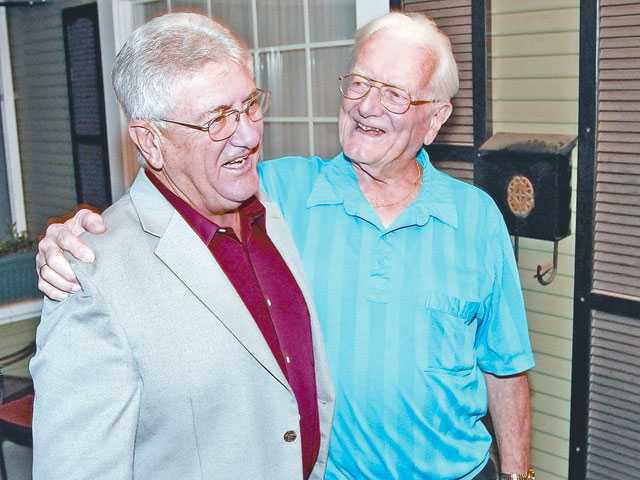Willie Weatherford is in his final year as mayor
The retired police chief isn’t seeking re-election in November to the post he’s held for the past 11 years after serving six years on the Manteca City Council.
Looking back, he sees the establishment of civility and business-like council meetings as elected leaders’ biggest achievement over the past 11 years.
From Weatherford’s perspective that trumps building the Big League Dreams sports complex, developing Woodward Park, landing Bass Pro Shops and Orchard Valley, securing the Stadium Retail Center anchored by Costco, the transformation of the shuttered Spreckels Sugar plant into an economic juggernaut, expanding and upgrading Library Park, the downtown makeover, landing Del Webb at Woodbridge, the new transit station, securing surface water to power growth to double the city, expansion of the wastewater treatment plant, and other projects.
“With have learned to disagree and still get along,” Weatherford said. “Council meetings are designed to take care of the city’s business and we are doing that.”
Because there is decorum and a business-like approach to city matters at the council level Weatherford believes the city has been able to do what it has done while many other communities struggled.
That wasn’t always the case. Back in the early and mid 1990s when Weatherford was still police chief, the mayor noted that many viewed Manteca’s council as the laughingstock of the Northern San Joaquin Valley.
Council meetings would drag on until 1, 2 and 3 o’clock in the morning. Municipal employees were on edge. Council members were accusing each other of leaking confidential information from closed door sessions. At one point in 1994 and 1995 the city had spent almost $1 million with two law firms due primarily to employee litigation and council infighting.
That included $690,254 paid to the firm of Whitmore, Johnson & Bolanos. In that amount was $25,000 in legal costs to have the firm determine if then council members Wayne Flores and Carlon Perry had broken any laws by questioning the actions of city department heads. They had not.
The acrimony was so bad that Vince Hernandez as a political novice running for council 11 years ago for the first time was able to resonate with voters with a campaign centered around three simple words, “Heal our City.”
Weatherford said the council started changing its tone 11 years ago. That’s when a decision was made to move citizens’ comments to the back of the agenda instead of the first item. At the same time speakers were limited to three minutes apiece unless additional time was granted by the mayor with the council’s concurrence.
“It (the agenda order and time restrictions) eliminated people beating up on those who had business before the council even before their item had come up and was presented and then beating them up again when the item came up,” Weatherford said.
The mayor noted people still got to make their point but they were forced to do it in an orderly manner without essentially staging mini filibusters.
At the same time, council members were encouraged to seek answers to questions before meetings so they didn’t either blindside department heads in public and so they could come to meetings being prepared to make decisions.
Weatherford noted that council members still question staff at meetings. But it is done as a wrap-up in the decision making process and not a starting point. The mayor said council members now ask department heads questions in advance of meetings, confer with impacted citizens when possible and then weigh comments of the public at meetings ending with follow up questions of staff before taking a vote.
It is that process that Weatherford said has reduced the diversion of energy and resources of both the staff and council to deal with a rancorous political-policy process to concentrate on economic development.
The elimination of large-scale turmoil has also helped elevate Manteca’s image in dealing with businesses that want to relocate or expand.
The mayor said firms pay heed to the political climate as a city in turmoil usually adds tremendous time and roadblocks in trying to bring jobs to a community.
“We (the council) have learned to disagree and get on with business,” Weatherford said.
How effective was the effort to bring civility to Manteca politics that had been marred in previous years by recall elections, district attorney investigations, and heated exchanges between council members? When Weatherford ran for re-election as mayor in 2006 something extremely rare happened — for the first time in Manteca history a seating mayor was unopposed in their re-election bid.
Mayor: Civility brought good things
Manteca council decorum led to economic development



